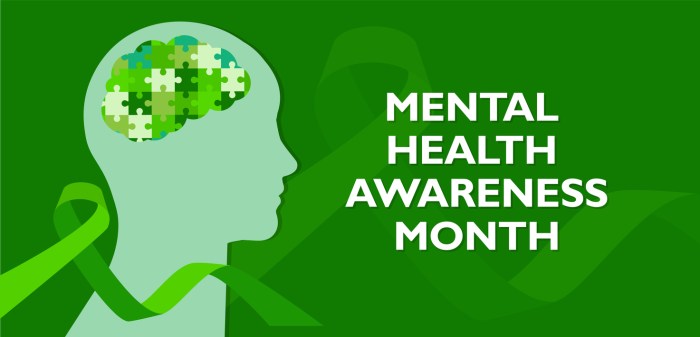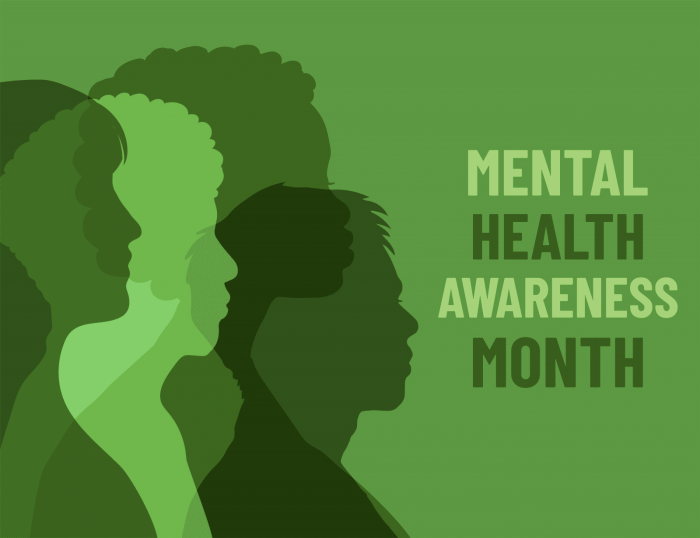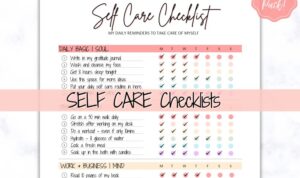Mental Health Awareness is more than just a buzzword – it’s a critical aspect of our well-being that impacts individuals and communities alike. Let’s dive into the importance, strategies for promotion, and ways to break the stigma surrounding mental health.
From successful awareness campaigns to combating discrimination, this topic sheds light on the resources available and the power of open conversations about mental health.
Importance of Mental Health Awareness

Mental health awareness is crucial in society as it helps break down stigma, provide support, and promote overall well-being. By raising awareness about mental health issues, individuals can feel more comfortable seeking help and talking openly about their struggles.
Positive Impact on Individuals
- Increased access to resources and support services
- Improved self-awareness and emotional intelligence
- Enhanced coping mechanisms and resilience
Positive Impact on Communities
- Reduced stigma and discrimination towards mental health issues
- Stronger support networks and sense of community
- Improved productivity and overall well-being of community members
Consequences of Neglecting Mental Health Awareness
- Increased risk of untreated mental health conditions
- Rising rates of substance abuse and self-harm
- Strained relationships and social isolation
Promoting Mental Health Awareness
Creating a culture of mental health awareness in schools is crucial for the well-being of students and staff. Here are some strategies to promote mental health awareness:
Implement Mental Health Education Programs
- Integrate mental health education into the curriculum to increase awareness and reduce stigma.
- Offer workshops and training sessions for students, teachers, and parents on mental health topics.
- Provide resources and information on mental health support services available within the school and community.
Encourage Open Conversations
- Promote open dialogue about mental health to create a safe space for discussing feelings and experiences.
- Organize mental health awareness events, such as panel discussions, guest speakers, or mental health fairs.
- Encourage peer support groups and counseling services for students who may need help.
Utilize Social Media Platforms
- Use social media to share information, resources, and personal stories related to mental health.
- Create awareness campaigns and challenges to engage students and raise awareness about mental health issues.
- Collaborate with mental health organizations and influencers to amplify the message and reach a wider audience.
Showcasing Successful Campaigns, Mental Health Awareness
- The “You Matter” campaign at XYZ High School encouraged students to share positive affirmations and support each other’s mental well-being.
- The “Break the Stigma” campaign on social media raised awareness about mental health challenges and encouraged open conversations.
- The “Mental Health Matters” week at ABC High School included workshops, guest speakers, and activities to promote mental health awareness.
Breaking the Stigma Surrounding Mental Health

There is a stigma associated with mental health due to misconceptions, stereotypes, and a lack of understanding about mental illnesses. This stigma often leads to discrimination, fear, and prejudice against individuals struggling with mental health issues.
Combatting Stigma and Discrimination
To combat stigma and discrimination against individuals with mental health issues, it is important to educate ourselves and others about mental health. This can be done through open conversations, sharing personal stories, and spreading awareness about the realities of living with mental illness.
- Challenge stereotypes and myths about mental health by correcting misinformation and promoting accurate information.
- Show empathy and support to individuals facing mental health challenges, instead of judgment or avoidance.
- Encourage open dialogue about mental health in schools, workplaces, and communities to create a safe and supportive environment for those struggling.
- Advocate for policies and initiatives that prioritize mental health awareness and support for those in need.
Importance of Open Conversations
Open conversations about mental health play a crucial role in breaking the stigma and promoting understanding. When individuals feel comfortable discussing their mental health struggles openly, it helps create a supportive and inclusive society where everyone feels accepted and valued.
- By sharing personal experiences and stories, individuals can show that mental health issues are common and should not be a source of shame or embarrassment.
- Creating a culture of acceptance and support for mental health challenges can encourage more people to seek help and access the resources they need.
- Open conversations also help reduce feelings of isolation and loneliness often experienced by individuals dealing with mental health issues, fostering a sense of community and connection.
Resources for Mental Health Awareness
In order to promote mental health awareness, it is important to have access to resources that can provide support and information to individuals in need.
Organizations Focusing on Mental Health Awareness
- National Alliance on Mental Illness (NAMI): Provides education, support, and advocacy for individuals and families affected by mental health conditions.
- Mental Health America: Offers resources, screenings, and information on mental health issues.
- The Trevor Project: Focuses on mental health support for LGBTQ+ youth.
Availability of Mental Health Resources in Communities
- Community Health Centers: Many communities have health centers that offer mental health services on a sliding scale basis.
- School Counselors and Psychologists: Schools often have mental health professionals who can provide support to students.
- Online Resources: Websites like Psychology Today and GoodTherapy can help individuals find mental health providers in their area.
Accessing Mental Health Support and Information
- Hotlines: Organizations like Crisis Text Line and National Suicide Prevention Lifeline offer 24/7 support for individuals in crisis.
- Support Groups: Joining a support group can provide a sense of community and understanding for individuals struggling with mental health issues.
- Therapy and Counseling: Seeking therapy from a licensed mental health professional can help individuals work through their challenges and develop coping strategies.
